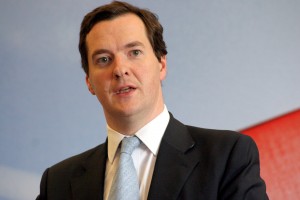The Budget 2013: what this year’s red box means for students and the economy
With the 50p tax rate cut still fresh in public memory, and Cyprus manifesting the consequences of poor fiscal management, George Osborne had little room for controversy in this year’s Budget. That said, the Chancellor of the Exchequer had even less room for manoeuvre, given the current all-too-delicate balance between positive growth and slashing the budget deficit to contain national debt. Here’s what emerged.
We begin with the trivial. Scrapping the 3p fuel duty rise and “taking a penny off the pint” will not do much to convince the public of a bright, economically sound future. Very little, in fact. Such popularity stunts are ill-founded in times of austerity – where the government sacrifices revenue in one place, it cuts spending (often by more) in another.
The government cannot eliminate its £120bn budget deficit by doing the public any favours, especially after conceding that growth in 2013 will not be the previously forecasted 1.2%, but only half of that. This of course corresponds to lower employment than what was expected, and as a result, smaller tax receipts. Not the case of ‘bottoms up’ the country was hoping for; rather a means of numbing the “painstaking work of putting right what went so badly wrong”.
Yet, the chancellor has outlined several measures to boost employment which will be of particular interest to the next few batches of university graduates. Branded as an ’employment allowance’, 450,000 small British firms will be relieved of paying National Insurance contributions to release more revenue for taking on workers. For all other companies, the first £2,000 of NICs will be waived for the same purpose. What’s more, the cut in corporation tax from 21% to 20% active from April 2015 will leave Britain with “the lowest business tax of any major economy in the world”.
Along with supply-side reforms, George Osborne has also targeted consumption. Perhaps attributable to the Liberal Democrats, the lowest threshold of income tax will be raised to £10,000 in 2014 – a year earlier than previously planned. This could in fact be more effective for the economy than last year’s 50p income tax cut; people on the lowest income have a greater marginal propensity to consume than those on the highest. For example, for an additional £100 of income, the former may spend £90 and save £10, whereas the latter may only spend £15 and save the rest.
However, the effectiveness of these policies to stimulate employment and consumption boils down to the credibility of the policies themselves. Both the higher threshold for income tax and tax relief for businesses come at a price: lower tax revenue for the government. Assuming rationality, consumers and firms alike will suss that these increases in income and profits are only temporary, and will have to be repaid at a later date if the chancellor is serious about cutting the budget deficit. As a result, we will not see the higher consumption, greater employment or more investment that is desired. Instead, credit will merely stick to banks’ balance sheets, rather than trickle through the economy.
And the same applies to the new ‘Help to Buy’ scheme, in which the government will loan house buyers up to 20% of the cost of a newly built home to minimise deposit payments. There are, of course, several risks. Not only will the loan by repaid at 1% above the Retail Price Index measure of inflation after six years, but such a mortgage subsidy is likely to drive up the prices of newly built homes – risking a housing bubble. This would nullify the effectiveness of the scheme to begin with. Moreover, even if these increases in prices stimulated the construction sector, the housing market would suffer from over capacity if the government were to scrap the scheme in the years to come. It may well be forced to.
Ultimately, recent Budgets have revealed a worrying trend: the government’s ability to steer the domestic economy is succumbing to greater, global economic forces. So the question must be asked, how much can we really expect the Budget to solve the UKs interdependent economic woes? The fate of the British economy, it seems, will not be determined in the House of Commons.

Comments